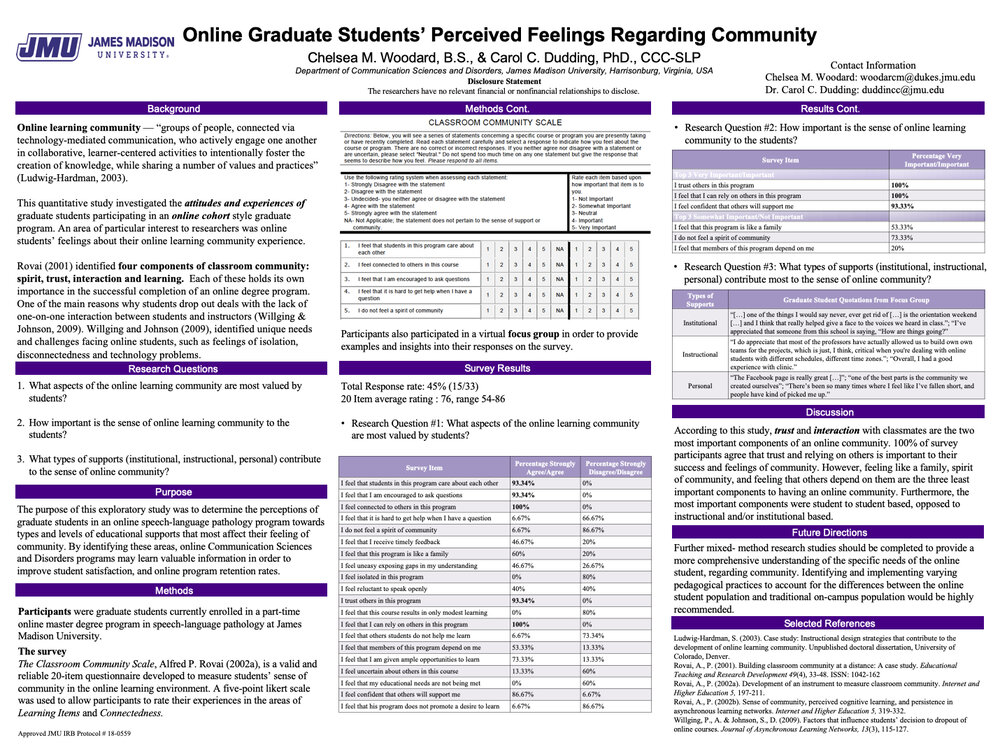Online Graduate Students' Perceived Feelings Regarding Community
Communication Sciences and Disorders: Speech-Language Pathology
Advisor: Carol C. Dudding, PhD., CCC-SLP
This exploratory study was conducted to determine the perceptions of graduate students in an online speech-language pathology program towards types and levels of educational supports that most affect their feeling of community, not only with peers, but with the faculty of the program as well. By identifying these areas, JMU’s online Communication Sciences and Disorders program learned valuable information in order to improve student satisfaction, and retention rates. Participants in this study were students currently enrolled in or recent graduates (within one year) of the online, master degree program in speech-language pathology at JMU. Participants completed a survey, utilizing The Classroom Community Scale, created by Alfred P. Rovai (2002a). This survey is a valid and reliable 20-item questionnaire for university students taking courses in a distance learning program, and measures students’ sense of community in their learning environment. Students rated each item on a five-point Likert scale. The students then rated each item in order of how important that particular item was to them. A few examples of items were, “I feel connected to others in this program,” and “I feel isolated in this program.” Participants also participated in a researcher lead, voluntary focus group to discuss their answers regarding the questionnaire. Results of the questionnaire were analyzed to determine the student’s feelings towards an online community, and institutional, and faculty support. The study revealed, trust and interaction with classmates as the two most important components of an online community. 100% of survey participants agreed that trust and relying on others was important to their success and feelings of community. However, feeling like a family, spirit of community, and feeling that others depend on them were the three least important components to having an online community. Furthermore, the most important components were student-to-student based, opposed to instructional and/or institutional-to-student based.

